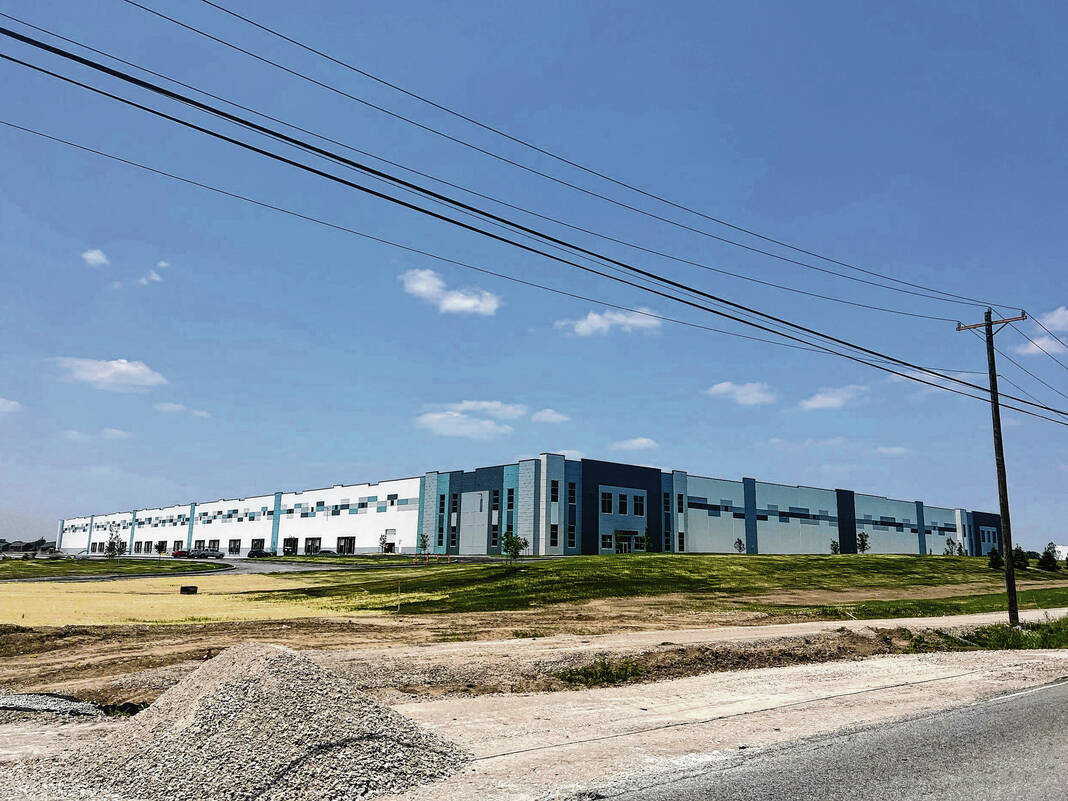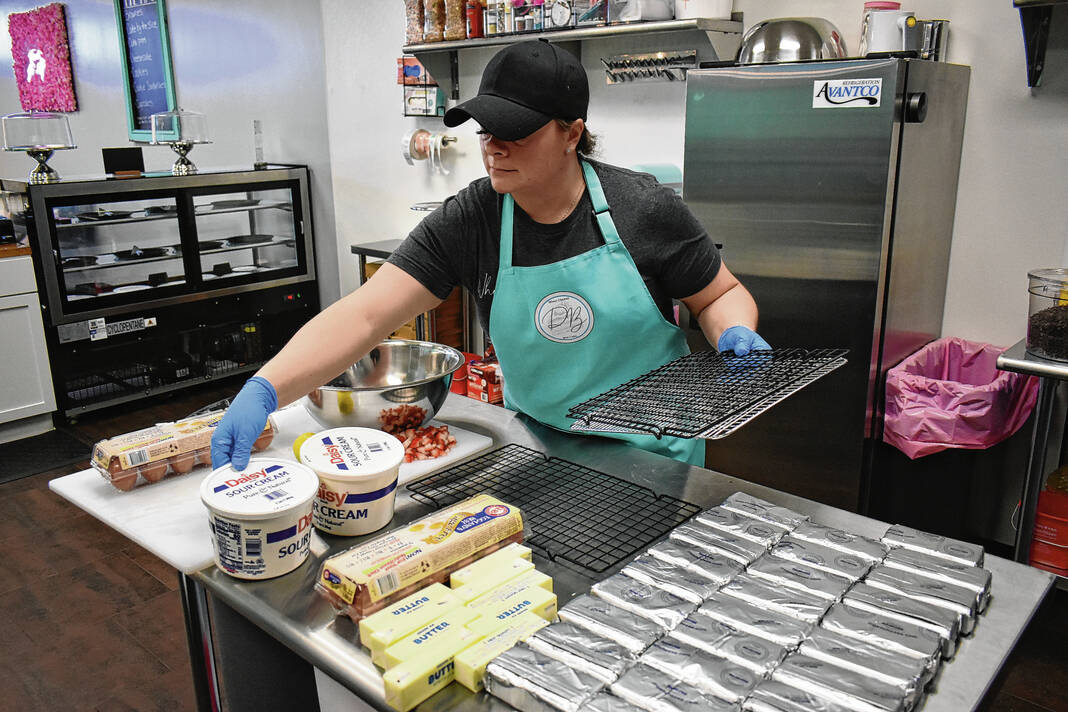Johnson County saw a record number of new business applications in 2022, federal data shows.
Last year, there were 2,093 new business applications filed in Johnson County, according to Business Formation Statistics released last month by the U.S. Census Bureau. The data is based on new employer identification number applications filed with the federal government.
The number of applications in 2022 is the highest its ever been since 2005, which is as far back as the data goes. Since 2005, the county has had the number of applications fluctuate due to the economic climate, including a low of 872 in 2005, but the average is around 1,209 as of 2022.
The number of applications has continually increased since 2018 though, rising from 1,196 to 2,093 in 2022 — a 75% increase, data shows.
The largest year-to-year increase since 2005 was between 2020 and 2021. New business applications rose by 26.3%, going from 1,541 to 1,946.
The Census Bureau does not count agriculture, forestry, fishing, hunting, public administration, civic and social, and private households in their definition of business applications. Instead, the bureau tracks more traditional for-profit establishments — places people visit as customers, seek out for employment or launch out of their homes as primary work or side hustles, said Christian Maslowski, president and CEO of Aspire Johnson County, the county-wide chamber of commerce.

This includes “solopreneurs” and start-up businesses, along with large corporations that often create separate legal entities when establishing a new location or division, Maslowski said.
“Several of our existing Johnson County manufacturers host several legal entities on their campuses already and expansions of existing manufactures often create new legal entities,” he said.
Maslowski believes Johnson County’s continued upward trend is a good indicator of the county’s economic health. So does Rosie Chambers, the executive director of the Franklin Chamber of Commerce, which serves not only the city of Franklin but all of the county.
“When businesses are thriving, I think that lends itself to an opportunity for entrepreneurs who are more inclined to start a new venture when the economy is strong,” Chambers said.
The trend tracks with success the county has seen in new industrial growth because larger companies are included under the definition of new business applications by the Census Bureau, Maslowski said.
“Most of the larger spec industrial buildings have resulted in multiple tenants, each potentially creating a new EIN (employer identification number),” he said. “And the upward trend would track with the growth Johnson County has seen in retail and commercial along our main corridors and reviving downtowns.”
Examples of commercial and retail growth include U.S. 31 on the north side of Franklin and areas of State Road 135 in Bargersville and Greenwood. Companies are opening here because the county’s labor force, consumer base and wages are growing — all healthy trends, Maslowski said.

Johnson County also has a high quality of life, which is both attracting businesses and keeping them from leaving, Chambers said.
“There are good education systems, our health care facilities are excellent. We have a lot of recreational opportunities and cultural amenities,” she said. “Our communities feel safe for most of our businesses, and I think that attracts businesses who want to be here and it also retains the existing businesses who wish to do business in the Johnson County area.”
The upward trend also says something about the county’s labor force and general population: more local residents are launching their own businesses, Maslowski said.
Business startups tend to spike in periods of economic crisis, like the Great Recession and the coronavirus pandemic, and people who become unemployed often turned to self-employment or gig work as a means to survive. Based on the data, this happened in Johnson County, along with many other Hoosier counties, Maslowski said.
But in the case of Johnson County, the trend continued upward during the recovery after each economic downturn.
“This means our residents are more entrepreneurial and continue to start businesses when it is not necessary but an option, an opportunity,” Maslowski said. “The character it takes to launch a business — confidence, braveness and ingenuity — is inherent but also learned.”
Maslowski says local families are becoming more confident in business startups, and local educators are teaching and providing experiential learning for starting a business. People are also more accepting of failure as a learning experience and a step in the process, rather than the end of a dream, he said.
“These are all healthy trends in developing a talented workforce, including for those who don’t own their own business but go on to lead a company,” he said.
Remote work may have also contributed to business creation, as working from home might have given people the extra motivation to go out on their own. The pandemic permanently changed the economy, Maslowski said.
“For a lot of folks, they got very comfortable, used to and enjoyed that situation where they eliminated a commute, which saved them time in their day and gave them time back for personal items. It just became a work-life balance, quality of life benefit,” he said.
The continued growth will matter to residents because it provides more employment opportunities and more shopping and dining opportunities, which feeds into improved quality of life. It also gives people flexibility, and the ability to become more involved in the community, he said.
Quality of life matters to everyone, but from a business perspective, it’s one of the first things they look at when moving to a community, Chambers said. Employees need to feel like they’re represented, need to feel safe and need to have things like healthcare and other amenities.
“People are looking for that quality of life. That’s how employers then retain their employees by keeping them in a place where they want to be,” she said.
Governments also benefit from the increased number of applications as they get more property tax revenue. In addition, it creates a less transient workforce, and fosters a stable, engaged population, Maslowski said.
For the future, Johnson County has the infrastructure in place to retain businesses. There is also a focus on steady and controlled growth so they don’t overwhelm the infrastructure, Chambers said.
“The future, I would say, is growing, but hopefully growing at a steady, controlled pace,” she said.
The coming years may have small dips in new business applications, but Maslowski expects the overall trend to continue going upward as more new businesses are launched in the county.
“Based on the housing demands we have all over the county — the unmet housing demands — based on the inquiries we get from companies looking to locate here, and based on the number of families … I think that all signals future growth and business creation,” he said.







